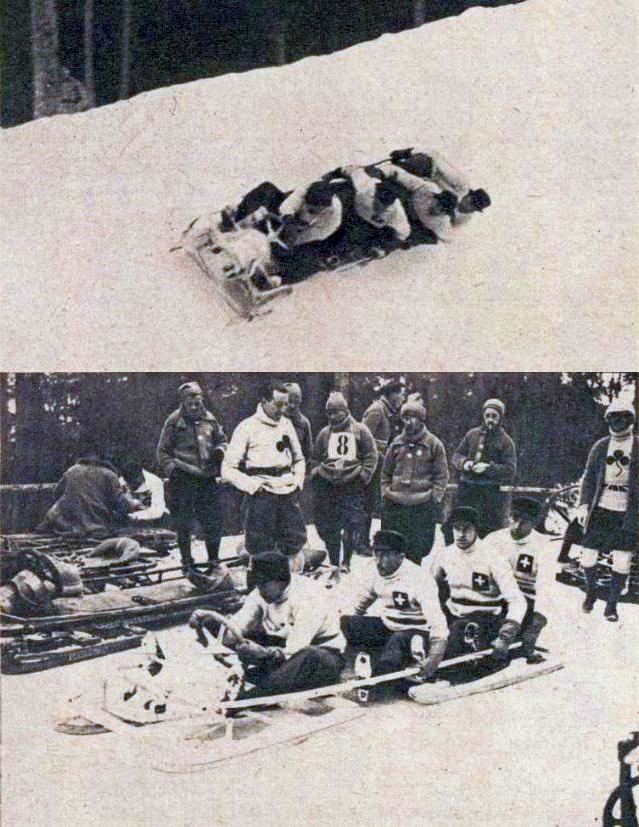1. Overview
Alfred Schläppi (Alfred SchläppiGerman) was a distinguished Swiss bobsledder and influential sports administrator. Born on January 30, 1898, he lived to April 15, 1981. His athletic career in the early 1920s culminated in a historic gold medal at the 1924 Winter Olympics in Chamonix, where he competed in the four-man bobsleigh event. Beyond his sporting achievements, Schläppi played a critical role in global sports governance, most notably as the President of the Organizing Committee for the 1948 Winter Olympics in St. Moritz, Switzerland. He shared this significant administrative duty with his younger brother, Heinrich Schläppi, who was also a bobsledder.
2. Early Life and Family
Alfred Schläppi was born on January 30, 1898, in Switzerland. He developed an early passion for winter sports, particularly bobsleigh, which became central to his life. His family included his younger brother, Heinrich Schläppi, who also pursued a career in bobsleigh. The brothers not only competed in the sport but later collaborated in its administration, demonstrating a shared commitment to the Olympic movement.
3. Bobsleigh Career
Alfred Schläppi embarked on his bobsleigh career in the early 1920s. He quickly rose to prominence as a talented athlete in the sport, known for his skill and dedication on the ice.
3.1. 1924 Chamonix Winter Olympics
The pinnacle of Alfred Schläppi's athletic career came at the inaugural 1924 Winter Olympics, held in Chamonix, France. He was a key member of the Swiss team competing in the four-man bobsleigh event. Demonstrating exceptional teamwork and precision, Schläppi and his teammates secured the gold medal. This victory was a significant achievement, marking Switzerland's presence on the global bobsleigh stage and establishing Schläppi as an early Olympic champion in the sport.

4. Role as Sports Administrator
Following his athletic successes, Alfred Schläppi transitioned into a crucial role in sports administration. His administrative efforts were particularly significant in the post-World War II era, contributing to the resurgence and continuity of the Olympic Games.
4.1. President of the 1948 Winter Olympics Organizing Committee
Alfred Schläppi served as the President of the Organizing Committee for the 1948 Winter Olympics, which were hosted in St. Moritz, Switzerland. His tenure as president spanned from May 8, 1945, to February 8, 1948. This period was immensely challenging as it immediately followed the devastation of World War II, which had led to a twelve-year suspension of the Olympic Games. Schläppi, alongside his brother Heinrich Schläppi, who shared this presidential role, played an instrumental part in overcoming the logistical and political hurdles to bring the Olympic movement back to life.
The 1948 St. Moritz Games were the first post-war Olympics, symbolizing a global return to peace, cooperation, and the unifying power of international sporting competition. Schläppi's leadership in organizing these games marked a significant departure from the previous leadership, which included figures like Joseph Goebbels and Karl Ritter von Halt associated with pre-war and wartime Olympic attempts that were ultimately cancelled. His efforts helped to re-establish the Olympic tradition on a foundation of international goodwill and sportsmanship. Following the success of the 1948 Games, the torch of Olympic leadership passed to figures such as Haakon VII of Norway, Princess Astrid of Norway, and Olaf Helset for subsequent Winter Olympics, ensuring the continuation of the prestigious international event.
5. Death
Alfred Schläppi passed away on April 15, 1981, at the age of 83.
6. Assessment and Legacy
Alfred Schläppi's contributions to sports are recognized through his dual roles as an accomplished athlete and a pivotal sports administrator. His gold medal at the inaugural Winter Olympics in Chamonix secured his place in the early annals of Olympic history, helping to define bobsleigh as a key winter sport. However, his most enduring legacy lies in his leadership during the organization of the 1948 Winter Olympics. Taking charge in the immediate aftermath of World War II, Schläppi, along with his brother Heinrich, was instrumental in reviving the Olympic movement. The 1948 Games in St. Moritz became a powerful symbol of international reconciliation and a return to normalcy and peaceful collaboration through sport. His dedicated efforts ensured the continuity of the Olympic tradition, underscoring the profound ability of sport to foster unity and recovery in challenging global times.